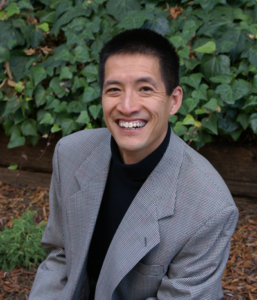
What Are You Telling Your Students?
At the Annual Meeting of the Society of Biblical Literature last year, the Student Advisory Board organized an interesting session titled, “What I’m Telling My Students.” I find this a wonderful question for every faculty to consider.
I would tell my students to write more because writing clarifies one’s thinking and writing is a habit. Students often misunderstand and mistake writing as the end product of reading and thinking. They rightly realize that one cannot write what one does not really know and understand, but they wrongly assume that they must then need to read first to inform their thinking and that writing can only begin after they have read enough and thought clearly. Unfortunately, this assumption has caused many students to delay their writing and, at times, caused them to miss deadlines and even unable to finish a degree. Of course, reading does inform one’s thinking, but there is always another book that one can read in this information explosion age. More importantly, the process of writing actually shows you where you need greater clarity in your thought and what specific information you may still need to gain. In other words, reading and writing should take place simultaneously rather than always one after the other. Students want to delay writing because writing is hard; it is much harder than reading. However, the difficulty of writing is not always because you lack information. Writing is hard and it is important because it forces you to think through whatever information you do have.
My former colleague, C. S. Song, used to tell me that if a person does not publish anything five years after finishing the dissertation, that person is unlikely to publish much in his or her career. I am not sure if the number of years is as specific and as set as Song puts it, as I do know at least a couple of wonderful scholars who, despite not really publishing in their early years, end up publishing prolifically once they entered mid-career. We work in different ways and at various paces. However, Song does bring out an important point about writing: Like any habit, writing is a practice that can be stopped and lost unless it is cultivated and kept. The earlier one develops this habit, the better it is likely to be.
I would also tell my students to ask big questions. Political theorist, Wendy Brown has indicated that neoliberal capitalism’s latest advance is no longer just about free-flowing capital being ironically promoted by state policies, but its  infiltration into literally every area of human lives and transformation of human beings into human capital and persons into firms. As capital and firms, we as individuals function at all times and act in all relations on the basis of investment and return. What will I get in return if I choose this major in college? Will the return for this friendship be worth my investment? Is the return great enough and efficient enough? I noticed several years ago that people in my hometown, Hong Kong, began to use a different vocabulary to describe their pursuits: they call it “adding value”; in Chinese, it is exactly the same term that people would use to refer to adding more money on their debit cards (e.g., for public transportation). You go to learn a skill and pursue another degree because all these acts will add value to you as human capital so others would invest in you. Is this also why so many students are coming to the USA to study, as well as why so many schools in the USA want to recruit them? Both are about capital and its attraction and accumulation. I hope my students, instead of studying primarily for their own capacity or capital building by jumping through academic hoops to collect degrees and credentials, would seek to engage and change the world for greater justice and mercy. This is especially important for us who teach in the field of religion and theology, as our field is meant to raise questions of meaning, purpose, and ultimate concerns.
infiltration into literally every area of human lives and transformation of human beings into human capital and persons into firms. As capital and firms, we as individuals function at all times and act in all relations on the basis of investment and return. What will I get in return if I choose this major in college? Will the return for this friendship be worth my investment? Is the return great enough and efficient enough? I noticed several years ago that people in my hometown, Hong Kong, began to use a different vocabulary to describe their pursuits: they call it “adding value”; in Chinese, it is exactly the same term that people would use to refer to adding more money on their debit cards (e.g., for public transportation). You go to learn a skill and pursue another degree because all these acts will add value to you as human capital so others would invest in you. Is this also why so many students are coming to the USA to study, as well as why so many schools in the USA want to recruit them? Both are about capital and its attraction and accumulation. I hope my students, instead of studying primarily for their own capacity or capital building by jumping through academic hoops to collect degrees and credentials, would seek to engage and change the world for greater justice and mercy. This is especially important for us who teach in the field of religion and theology, as our field is meant to raise questions of meaning, purpose, and ultimate concerns.
What about you? What are you telling your students?